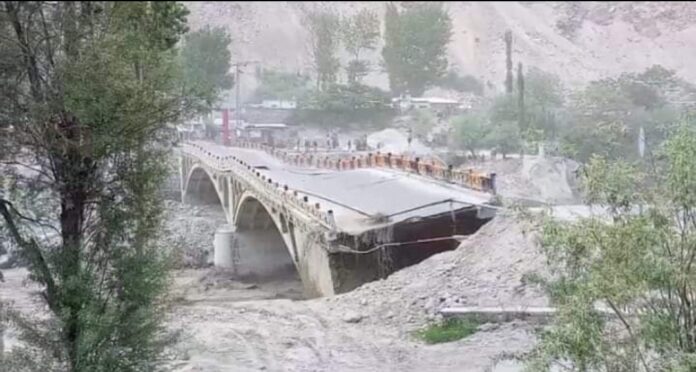Some still do. Some spends lots and lots of cash to ensure that the people of the planet are not in communion. They want conflict and despair. They are sociopaths and psychopaths who care less for us than the exit point of their lavatory system.
Check out this unprecedented heatwave in Pakistan and India:
The consequences of unprecedented and record smashing heat in #Pakistan since March.
— US StormWatch (@US_Stormwatch) May 7, 2022
Glacial lake outburst from the Shishper Glacier causing catastrophic flooding. pic.twitter.com/cfEYWRt7go
Still think the destruction humanity is responsible for is a myth?
Sprawling dumps of plastic waste can now be mapped from space thanks to a new tool using satellite imagery and artificial intelligence, in what is believed to be a world first.
From a burning waste on a Sri Lankan beach to an Indonesian site seeping into a river, Global Plastic Watch (GPW) can detect sites as small as five by five metres, presenting them in an interactive global map of plastic in near real-time.
“It’s not about naming and shaming,” but “empowering governments,” with information to help tackle the problem, explained Fabien Laurier, a key architect of GPW.
The free, public tool, entirely funded by the philanthropic Australian Minderoo foundation, is designed to help stop plastic from flowing into the ocean. It has been “applauded” by the United Nations.
“It is difficult to control what you cannot measure” or even locate, Kakuko Nagatani-Yoshida from the United Nations Environment Programme stated. She hopes governments would use the “cutting-edge” technology to reduce “open-dumping and burning of waste”.
Indonesian minister Ibu Nani Hendiarti said they had already used GPW to track down undocumented or illegal sites. Indonesia is the fifth highest contributor to ocean plastics.
Every minute of every day, the equivalent of one truckload of plastic trash enters the world’s oceans, killing an estimated 100,000 marine mammals each year.
Identifying plastic waste sites ‘is totally novel’
Mr Laurier, a former climate adviser to then US President Barack Obama, called plastic pollution “one of the greatest environmental crises of our time,” posing “tremendous environmental and human health issues”.
Although a similar process is already widely used to track deforestation, data about plastic sites is generally based on models and estimates.
“Identifying the waste sites in the satellite imagery is totally novel and something that is very hard to do at all, [even] on a small scale,” Caleb Kruse, GPW’s lead data scientist, said on a video call from Berkeley, California.
Many of the identified sites are perfectly well-managed, while others are spewing out waste.
Mr Kruse’s team taught artificial intelligence to comb satellite imagery from the European Space Agency for “give-away” features of plastic sites, including an entry road for heavy vehicles and grey-brown textured areas showing mounds of waste.
‘Enormous’ scale of some sites
“You can see that it’s almost like an avalanche of waste that [appears to be] just flowing right into that river,” he said.
To give a sense of the “enormous” scale of the site, he hovered his cursor over a house across the river, minute in comparison to the grey-brown sprawl of rubbish.
Just a “house-sized” amount of waste “can be really substantial”, he said.
Once identified, each location is then verified by a trained reviewer and cross referenced with other datasets to flag warning signs like proximity to waterways or people, or whether the soil type makes flow of plastic into the water more likely.
“The crazy thing is, we find sites like this all over,” Mr Kruse said, as he flashed up image after image of waste sites on his screen.
World’s waste hotspots
The interactive website has identified hundreds of waste sites across 26 countries, which account for more than 80% of the plastic in the world’s waterways.
Many of these countries will be processing waste that’s been exported by other countries, as well as their own. The UK ships off more than half its plastic waste every year. Western countries have their own “problems” with waste sites too, he said.
The process underpinning GPW is undergoing review for publication in a scientific journal.
Mr Kruse is clear-eyed about the fact the tool is not the “be-all and end-all dataset on plastic waste”, but hopes governments, NGOs and communities can use it as a starting point.
Award Winning Independent Citizen Media Needs Your Help. PLEASE SUPPORT US FOR JUST £2 A MONTH https://dorseteye.com/donate/







